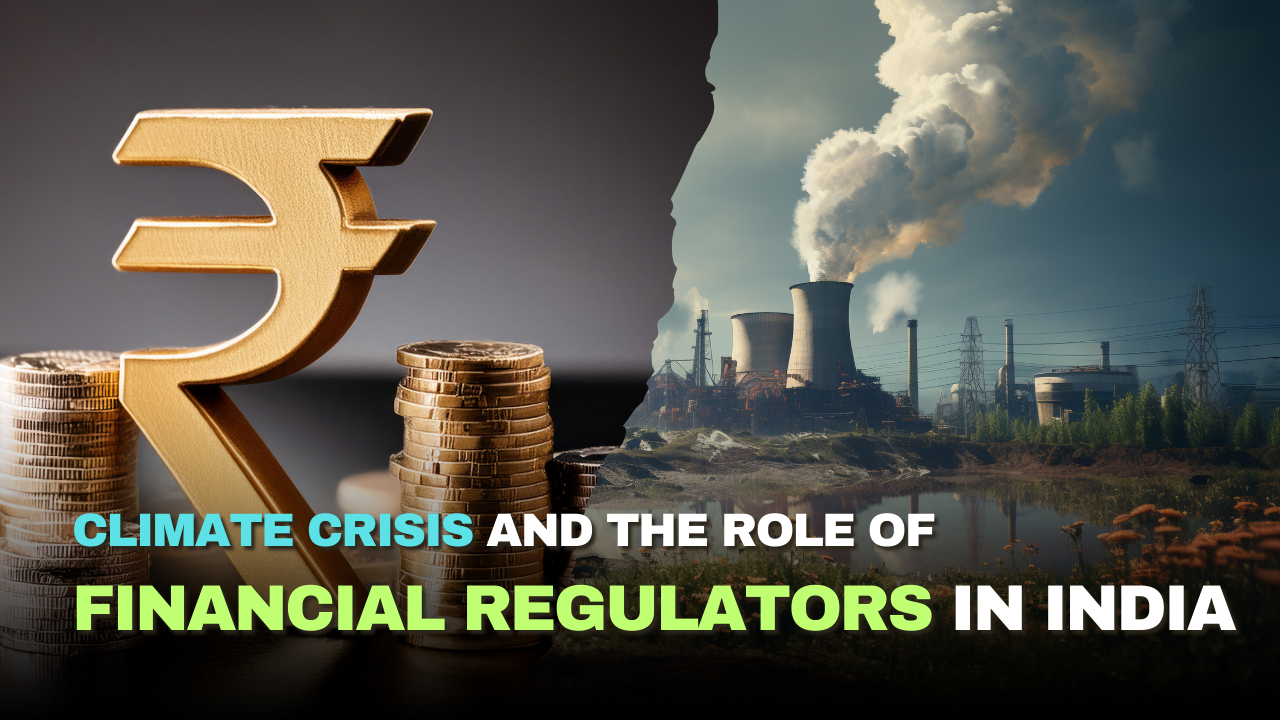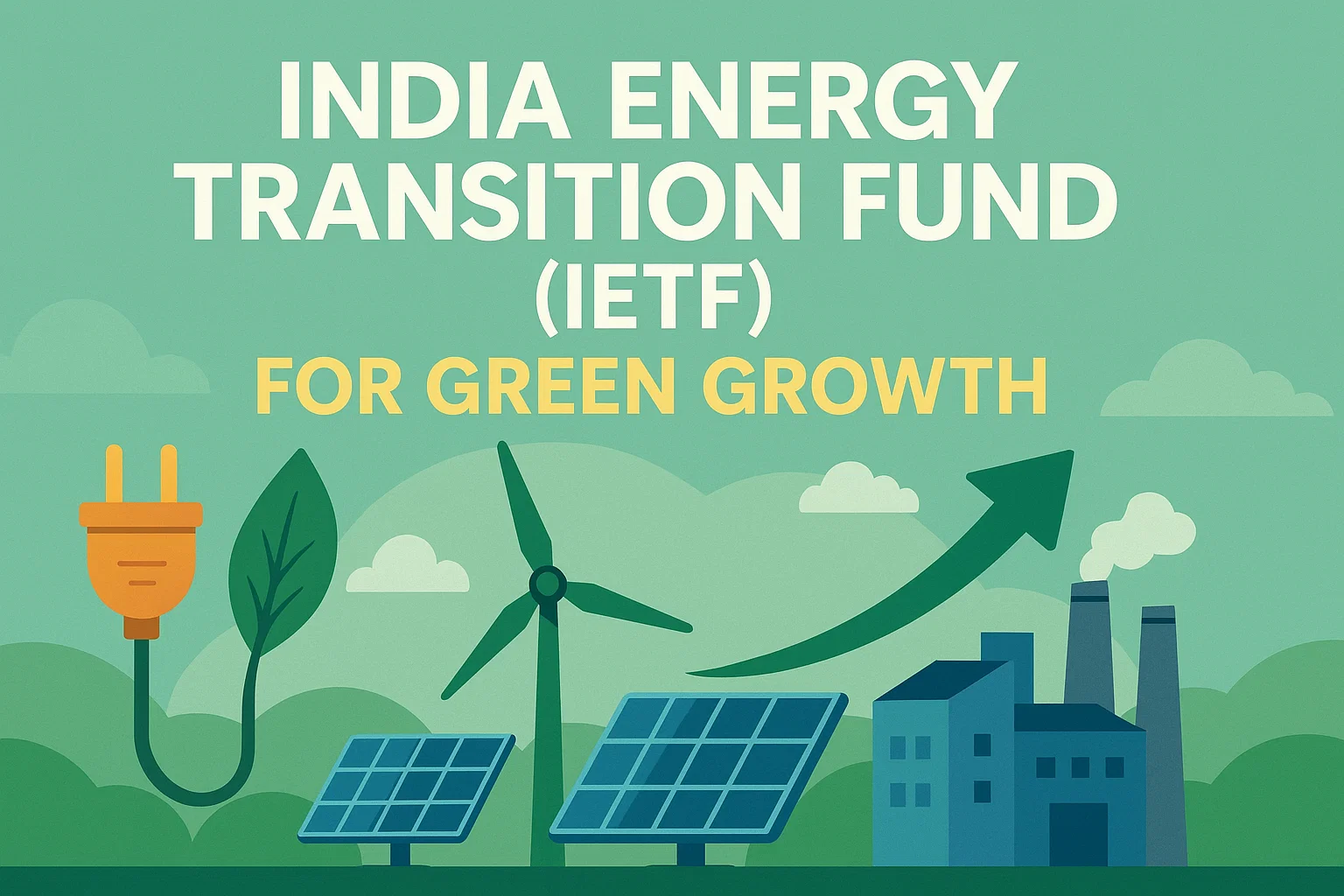Font size:
Print
Climate Crisis and the Role of Financial Regulators in India – (RBI)
The green gap in India’s financial system regulation
Context: Global financial regulators, including the Reserve Bank of India (RBI), recognise climate-related financial risk as a potential threat to systemic stability.
More on News
- Regulators have an obligation to assess and mitigate the financial impacts of the climate crisis to protect regulated entities (REs) and maintain financial resilience.
- However, there is no consensus or uniformity in regulatory responses, leaving financial systems vulnerable and hindering capital mobilisation for climate action.
RBI’s Current Stance: Rhetoric Over Regulation
- Over the past few years, the RBI has largely relied on moral persuasion and rhetorical appeal to encourage regulated entities (REs)—primarily banks and financial institutions—to incorporate climate considerations into their operations. Its strategy has included:
- These actions aim to nudge REs toward voluntarily assessing climate-related risks in lending decisions and risk management practices.
- While some banks have responded by establishing Environmental, Social, and Governance (ESG) units, recruiting climate experts, and employing consultancies to audit their emission footprints and exposures, progress has been uneven and slow.
Key gaps in RBI’s approach
- Despite releasing disclosure guidelines, the RBI has yet to implement or enforce them, remaining silent on their rollout even a year later.
- Furthermore, it has not provided any clarity on how climate considerations will be embedded into its supervisory practices or monetary policy tools.
- This regulatory ambiguity leaves financial institutions without a clear roadmap or incentive structure to prioritise climate resilience.
Need for Forward Guidance
- To provide stability and direction, the RBI must embrace forward guidance as a policy tool—clearly stating what it intends to do under specific climate-risk scenarios. This not only anchors the expectations of financial institutions but also incentivises long-term planning.
- So far, forward guidance from the RBI has been limited to setting a timeline for climate-related disclosures and climate stress testing. A more assertive approach could include:
- Imposing climate-risk weightage on asset classes,
- Integrating climate risk into the supervisory review framework,
- Embedding climate indicators into monetary policy,
- Offering preferential capital treatment for green investments (e.g., reducing risk weights for green sectors to lower lending rates and stimulate capital flow).
Role of Other Financial Regulators
- Institutions like the Pension Fund Regulatory and Development Authority (PFRDA) and the Insurance Regulatory and Development Authority of India (IRDAI) also manage trillions of rupees worth of long-term capital invested in a range of financial instruments.
- Given the long investment horizons of pension and insurance funds, their portfolios are particularly vulnerable to climate risks, which are projected to escalate over time. Yet, these regulators have not implemented sufficient frameworks to mitigate such risks or protect the interests of the asset holders.
- Meanwhile, the Securities and Exchange Board of India (SEBI) has shown greater activity—mandating ESG disclosures for listed companies and overseeing the development of green financial products. However, SEBI has been notably silent on mutual funds, a significant RE with high exposure to equities and bonds—both of which are susceptible to climate-related value erosion.
Global Best Practices and the Need for Alignment
- Globally, several countries have moved decisively on this front:
- The UK encourages pension fund trustees to incorporate climate concerns into fiduciary responsibilities.
- South Africa’s Pension Act mandates the inclusion of environmental factors in investment decisions.
- Bangladesh and Vietnam have introduced regulations integrating climate risks into financial supervision.
- Moreover, all three of India’s major regulators—PFRDA, IRDAI, and SEBI—are members of the International Organisation of Securities Commissions (IOSCO), which prescribes guidelines on sustainable finance practices.
The Urgent Need for Coherence
- A key barrier to progress remains the lack of consistent regulatory signals. Incoherent messaging—both within India and across international jurisdictions—creates confusion, discourages market actors from aligning portfolios with climate objectives, and impedes transparency.
- To bridge this gap and mobilise the green capital necessary for India’s net-zero transition, financial regulators must act in concert. This means:
Subscribe to our Youtube Channel for more Valuable Content – TheStudyias
Download the App to Subscribe to our Courses – Thestudyias
The Source’s Authority and Ownership of the Article is Claimed By THE STUDY IAS BY MANIKANT SINGH




